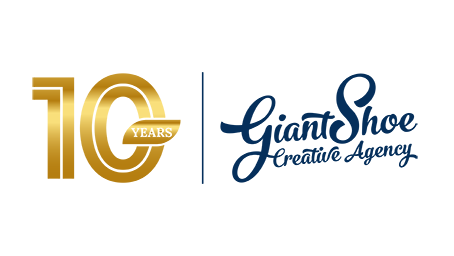
In this edition:
Ontario invests $4.9 million in Niagara steel and agriculture
Local Business Accelerator program launches in Port Colborne
Canadian rate of inflation highest in 30 years
300,000 businesses to receive WSIB refunds
Ontario reduces fees for owners and operators of amusement devices and ski lifts
Ontario invests $4.9 million in Niagara steel and agriculture
The Ontario government is supporting an investment of $53.2 million by two companies in Southwestern Ontario. Combined, the province is investing more than $4.9 million in the local steel manufacturing and agriculture sectors through the Regional Development Program, which will help create 45 new jobs.
Valbruna ASW Inc. is Canada’s only manufacturer of specialty steel products, including carbon, alloy and stainless steel. The company is investing $50 million in new innovative equipment and facility upgrades.
Quick Plug CA Inc. engineers and manufactures a variety of peat plug products for professional growers, including traditional greenhouses and hydroponic growers. The company is investing $3.2 million to centralize its North American production facility in St. Catharines.
My Main Street Local Business Accelerator program launches in Port Colborne
The My Main Street Local Business Accelerator program has officially launched in Port Colborne, with a full-time Main Street Ambassador offering support to new and existing small businesses in both the downtown and main street areas.
At the core of My Main Street is its ambassadors, who provide dedicated support to small business owners at no cost. Ambassadors can also assist their clients with applications for a $10,000 non-repayable business support grant.
To arrange a virtual meeting with the Main Street Ambassador, email olga.loeffen@portcolborne.ca or call 905-835-2900 x507. The My Main Street program will run in Port Colborne until February 2023. For program details and more information, visit the My Main Street website.
Canadian rate of inflation highest in 30 years
In January 2022, Canadian inflation surpassed 5% for the first time since September 1991, rising 5.1% on a year-over-year basis and up from a 4.8% gain in December 2021. In comparison, the headline Consumer Price Index (CPI) increased 1.0% on a year-over-year basis in January 2021.
Excluding gasoline, the CPI rose 4.3% year over year in January 2022—the fastest pace since the introduction of the index in 1999. COVID-19 pandemic-related challenges continue to weigh on supply chains, and consumer energy prices remain elevated. Taken together, Canadians continued to feel the impact of rising prices for goods and services, especially for housing, food and gasoline.
300,000 businesses to receive WSIB refunds
Ontario’s safe employers are receiving a rebate of up to $1.5 billion as Workplace Safety and Insurance Board (WSIB) surplus funds are returned for the first time. This rebate will give 300,000 businesses back approximately 30 per cent of their annual premium payments.
The surplus distribution will only be provided to safe employers, who will receive their rebates starting in April. For a business with 80 to 125 employees, this could mean receiving $28,000 to reinvest in their business and workers.
Ontario reduces fees for owners and operators of amusement devices and ski lifts
The Ontario government is further expanding over $340,000 in critical financial support for owners and operators of amusement devices and ski lifts. Through the Technical Standards and Safety Authority (TSSA), the government is reducing permit and licence fees by 75 percent for 163 businesses operating almost 1,000 devices across Ontario until the end of 2022, while ensuring strong public safety standards are maintained.
Reading Recommendations
Bank of Canada will forcefully tackle inflation if need be – deputy governor
Reuters
The Bank of Canada will be nimble and potentially “forceful” in tackling uncomfortably high inflation, a senior official said on Wednesday, setting the stage for an aggressive campaign of interest rate increases.
Deputy governor Timothy Lane, speaking to a university audience, said there was a risk inflation could continue to be more persistent than forecast and the central bank was increasingly focused on countering the upside risks.
“We will be nimble — and if necessary, forceful — in using our monetary policy tools to address whatever situation arises, as we have done throughout these turbulent times,” Lane said.
What is the Emergencies Act and what Ottawa can—and can’t—do with it
Maclean’s
On Monday, Prime Minister Justin Trudeau announced he was invoking the federal Emergencies Act to try to end the protest blockades that have entrapped downtown Ottawa and disrupted international border crossings across the country for weeks.
This is the first time the Act has ever been used, so Maclean’s spoke to Nomi Claire Lazar, a professor in the Graduate School of Public and International Affairs at the University of Ottawa and author of the book States of Emergency in Liberal Democracies about what this allows the government to do, why the law exists and what are the limitations on its power. This conversation has been lightly edited for length and clarity.
Niagara COVID-19 statistics tracker
Niagara COVID vaccination tracker
Information on government grants, resources, and programs, policies, forms, and posters for download and use, are available here. The GNCC is here to support you. Contact us with any questions you have.
Through the Daily Updates, the GNCC aims to deliver important business news in a timely manner. We disseminate all news and information we feel will be important to businesses. Inclusion in the Daily Update is not an endorsement by the GNCC.


